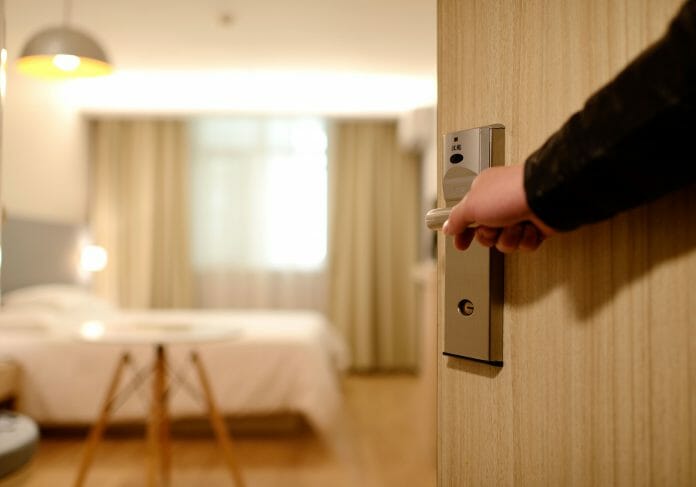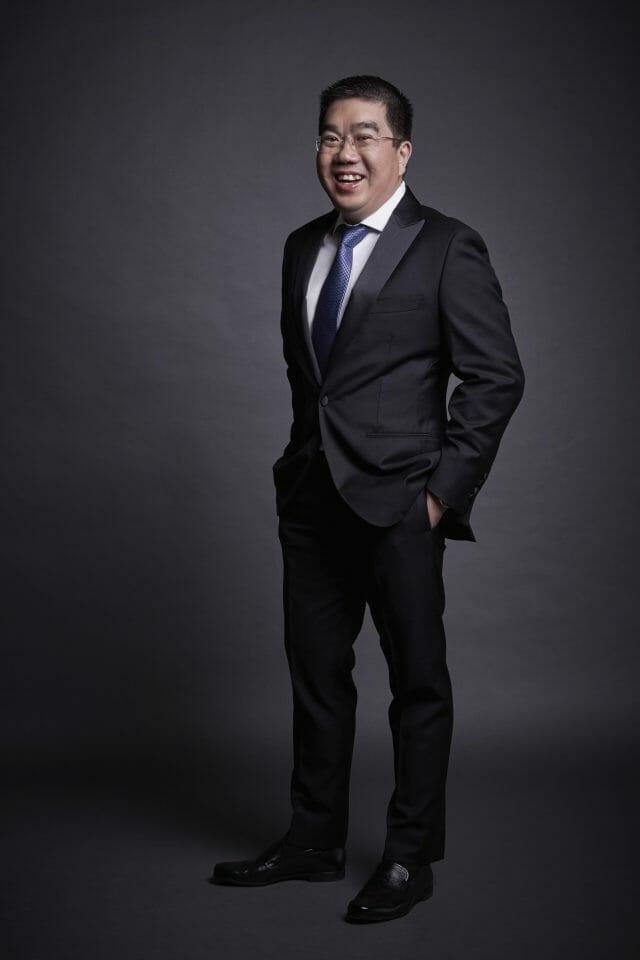Business Today speaks to Jason Chong, chief executive officer & co-founder of Cornerstone Partners Group (CPG), on the impact to the hotel industry due to the Covid-19 pandemic and the measures to cope with the situation.
By Sharon Chang
The hospitality and tourism industries have taken a brutal beating with tourist arrivals coming to a halt since the unprecedented Covid-19 pandemic and Movement Control Order (MCO) was implemented.
Though it’s true that such occurrences are hard to predict – the ‘black swan’ event – they cause catastrophic consequences.
Now, as the pandemic has spread to major global tourism markets, the hotel industry is at risk of experiencing a business downturn from lower levels of global and regional travel.
“This pandemic and travellers’ behaviour are expected to set Malaysia’s tourist arrivals back by two decades to less than the 10.22 million recorded in 2000,” Chong says, adding that the tourism industry will not pick up even after the MCO is lifted because this global pandemic will deter tourists coming in from other countries.
People will be wary of travelling and as most countries have stopped their citizens from travelling, the industry will continue to suffer.
According to Chong, the hotel industry will be so badly affected to the extent that it’s something most of us will not experience during our lifetime.
Despite the hotel business being listed as an “essential service”, there are two defining aspects of the MCO’s effect on hotels: firstly, restrictions imposed on hotels from taking in domestic guests, and secondly, the freeze on inbound international travellers.
“These two aspects can be viewed as somewhat oxymoronic, as domestic guests aren’t allowed to check-in and there aren’t any international guests arriving, thus making it difficult for hoteliers to keep their workers gainfully employed,” Chong explains.
According to the Malaysian Association of Hotels (MAH), business volumes across hotels in Malaysia have dwindled to a third, year-on-year, while Smith Travel Research (STR) claims they see unprecedented historical low levels of occupancy. External factors contributing to this are travel bans imposed by many countries as well as traveller sentiments.
Chong also says that on an operational perspective, some hotels have temporarily closed to weather out the pandemic, while others are trudging along with single digit occupancies. There are even some hoteliers who volunteer their hotels as quarantine stations for returning Malaysians.
“The low guests’ volume has severely disrupted cashflow for both the property management operating level and the investment company in terms of servicing financial obligations, he adds.
“To mitigate the financials, lay-offs, pay cuts and other payroll reduction measures have inexorably been announced at some hotels. But the cleaning and sanitisation costs have increased to upkeep the hygiene of the hotels.”
In the instance of CPG, Chong says the company is fortunate to have their presence in three distinct countries, with access to many financial affiliates to allocate and reroute their resources and capital where it’s most required.
“Our regional coverage has also allowed us a diverse perspective on the virus’ impact on hotels. The ability to compare data on social practices, consumer sentiment, the virus’ effects through these regions, and different national and specific hotel strategies applied does give us a bit of an upper hand in tackling the reduced business volumes.” he remarks lightly.
Chong tells Business Today that while the industry is reeling from the brunt of Covid-19’s short-term effects, they believe that this pandemic will change the course of the industry and will create a lasting impact.
“Travel patterns and cost management methods will evolve, and this serves as an opportunity for us to look at things we’ve taken for granted in the past, and reposition ourselves,” he opines.
Sustenance to survival
In response to questions on how long the industry can sustain before drastic changes or measures need to be taken, Chong says it depends on the maturity of the property.
“Most hotels in Malaysia should have sufficient working capital on the property to sustain for around two months. With prudent cost management and mitigation initiatives, I would believe, like other hotel owners, we should be able to weather out at least 3 months of reduced business, he says.
“Nonetheless, bearing in mind that salaries constitute the single largest fixed cost of any hotel, every hotel owner is working tirelessly to preserve liquidity. Even a significant amount of capital reserves may not be sufficient if there’s an imminent delay to recover.”
Recovery
The road to recovery can be long – hopefully not, but the bulk of the tourists’ receipts will be from domestic travellers. Malaysians will likely be travelling locally for the time being.
Chong says the domestic tourism is easier to predict, as he thinks the industry can expect an influx of domestic guests within 3 months after the MCO is lifted, which is also in line with MAH’s prediction, the 3rd quarter of this year.
“This is partly due to Malaysia’s competent management of the outbreak.”
On global travel, he mirrors the thoughts of economists. If there is a salient and viable containment “solution” to the virus, it may take possibly anywhere between 6 months to a year.
While we applaud the Government’s initiatives to the hospitality sector such as the wage subsidy programme and the special relief fund, but according to Chong, the special relief fund is limited to RM1,000,000, which unfortunately isn’t particularly helpful to the larger convention hotels.
While MAH has lauded a higher wage subsidy and MATTA having urged the government for a longer period beyond the 3 months, Chong believes a tailored approach may be more appropriate.
“Hotels are resource intensive businesses, and no two hotels are alike.”
Take the wage subsidy programme for example, the limit is capped at 200 employees, which may be more than sufficient for budget and small-scale hotels, but totally inadequate for larger hotels or resorts with higher room counts and facilities.
Furthermore, the cap on RM4,000 qualifying salary only benefits the rank and file of the property, and may exclude supervisory & management personnel, which contribute to a significant and necessary portion of the payroll.
“As one of the most direly hit industries, I would advocate for any hospitality targeted stimulus to be catered to those who really need the support, fully scalable to the size of the hotel, and for the recovery strategy to be systemically forward looking, Chong stresses.
“There should be a semi-assured light at the end of the tunnel.”
Strategies moving forward
At the property level for our Malaysian hotels, domestic guests are the priority for the immediate future.
Hotels should craft strategies towards that effect.
“We have to realise, travel habits have indubitably changed, guests will place higher emphasis on hygiene and prevention, and we have to ensure our hotels are able to adapt to our client’s dispositions,” Chong points out.
Covid-19’s impact would dictate travel patterns as well, such as less Meetings, Incentives, Conferences and Exhibitions (MICE) but more staycations and self-contained resort experiences.
“Therefore, we are taking the opportunity to reassess our products’ positioning and would not rule out repositioning after market stabilises.”
In a way, the reduced business volume is forcing the industry to take a good hard look at itself, and as a result, neoteric cost mitigation exercises are now being implemented.
“While we have always fostered a close relationship with our management and brand partners, but in times of crisis, we’ve forged even closer ties and work hand-in-hand with them in bolstering the business,” Chong shares.
Therefore, Chong says the company is pleased and appreciative to their associates such as InterContinental Hotels Group (IHG) and Hilton for taking drastic immediate steps to curb spending and preserve liquidity.
“On a corporate level, as a group, we have been on a sharp growth/acquisition phase for the past half-decade, focusing on new developments, he adds.
“However, our near-term strategies, given the economic outlook may involve risk-adverse acquisitions of operating assets with proven track records or hedging products with potentially lower but secured yields, we expect favourable deals to be slowly seeping into the market in the near future.”
Even prior to the pandemic, CPG has foreseen a potential market downturn, and hedged into mixed developments such as the announced CPG Tower in Melbourne.
“The company, as a group, is and will be hospitality centric, but we are studying other real estate asset classes as well, with diversification as a strategy,” Chong concludes.
There is much to be said on the buoyancy of the hotel industry, evidenced by how we overcame a range of past crises.
Having said that strategy developed at this point has to be centred around resiliency. Nonetheless, no strategy developed by an individual organisation can survive on its own, we will require both global and national cohesive efforts to surpass this challenge.










